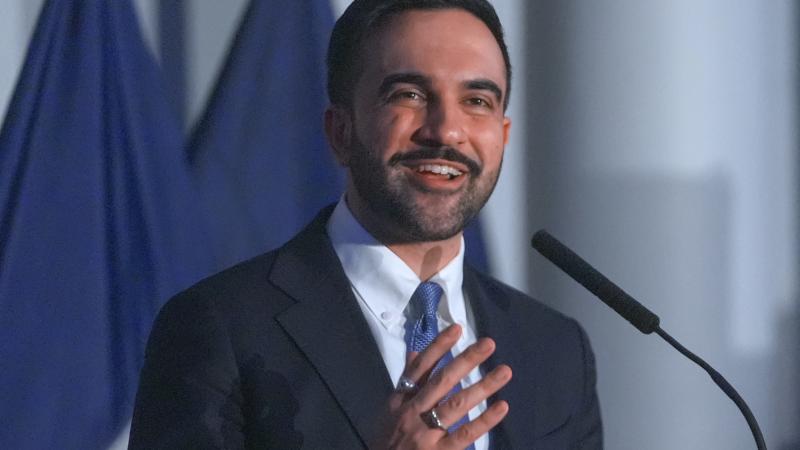After meeting with Texas Gov. Abbott, CenterPoint utility drops customer rate hike request
Announcement came four days after a Texas Senate hearing where lawmakers vowed to protect customer from higher electric bills.
After top executives met with Gov. Greg Abbott, CenterPoint Energy announced it was withdrawing its request with the Public Utility Commission of Texas to have ratepayers cover its costs and make a profit.
The announcement came four days after a Texas Senate hearing where Republicans and Democrats were united in their resolve to ensure customers’ weren’t socked with higher electric bills. They also expressed their shared commitment to hold accountable the multi-billion-dollar company for not restoring power to more than two million residents in the Houston area for up to two weeks after a Category 1 hurricane hit on July 8.
After apologizing for the company’s failures, CenterPoint CEO Jason Wells said the company filed a request with the PUC to recoup their costs from the storm. Defiant to not resign from his multi-million-dollar salaried position, Wells also remained resolute in the company’s request to hike energy rates to have customers pay for a 10% profit and all recovery costs.
Aghast by his response, state Sen. Carol Alvarado, D-Houston, said, “CenterPoint intends to increase their rates to recoup the cost of recovering from Hurricane Beryl, passing the cost on to the customer. That dog won’t hunt.”
State Sen. Paul Bettencourt, R-Houston, also said, “After 4 hours of testimony, I would like to highlight these four words used by CenterPoint CEO Wells in the Senate hearing: ‘Inexcusable; Insensitive; Unacceptable; Insufficient.’ But CenterPoint is going to go to the PUC to ask for cost recovery from Hurricane Beryl.”
It would take a meeting with Gov. Greg Abbott in Austin on Thursday for the company to finally change course.
Wells announced CenterPoint was withdrawing its request before the PUC, stating, “We are acting urgently to strengthen our resiliency, improve our communications and emergency coordination. We believe any delay or distraction from this mission is unacceptable. Our company’s collective focus for the remainder of this hurricane season will be on being ready: that is our mission. Nothing is more important than being ready for the next hurricane and rebuilding the trust of the community we are privileged to serve.”
Gov. Abbott said he spent more than two and a half hours with Wells and CenterPoint EVP Jason Ryan to discuss a proposal the company submitted in response to his request. Two weeks ago, Abbott issued several demands CenterPoint must meet by July 31 and in August. But the proposal he received “was inadequate,” he said. He instructed them “that more must be done and it must be completed faster than originally proposed” and “before the next tropical storm hits their region,” he said. They agreed.
On Friday, Lt. Gov. Dan Patrick sent a letter to the PUC requesting it to ensure CenterPoint pays $800 million for generators it didn’t use and charged ratepayers for. Bettencourt on Monday raised concerns that potential fraud might have occurred.
After Winter Storm Uri in February 2021, when Texans were without power for at least a week in subfreezing temperatures, the state legislature passed a law to allow some utilities to lease small mobile generators to quickly restore power to critical facilities during a major emergency. “CenterPoint deviated from this approach, instead appearing to choose to prioritize profits over effectiveness,” Patrick wrote the PUC. “Rather than leasing small mobile generators as intended by the legislation, CenterPoint squandered $800 million of ratepayer funds on massive non-mobile generators while spending only .000625% of that amount on what the legislation called for and would have actually helped their customers in the aftermath of Hurricane Beryl.
“As a result, CenterPoint was forced to borrow small mobile units from other TDUs that had complied with the legislation while their large non-mobile generators sat idle. This not only undermined the effectiveness of their storm response but also highlighted a misuse of the allocated funds.”
At Monday’s hearing it was revealed that CenterPoint leased the generators and never used them but reportedly earned “at least $30 million in profits,” Patrick said. “The Commission has a duty to ensure customers only pay just and reasonable rates for transmission and distribution services,” and urged the PUC to “take action as needed to change any rates that are unjust, unreasonable, or in violation of any law.”
Patrick, who called the special legislative hearing and said legislative changes are coming next year, said, “CenterPoint either made the choice to pursue profit over protecting the customers they serve or made a bad business decision on behalf of the rate payers by pretending these units were ‘mobile’ when they were not. Either way, the decision violated the ‘reasonable and necessary cost’ statutory provisions, and CenterPoint should be disallowed from using ratepayer dollars to pay for these leases.”
Nearly 7,700 Houstonians have called on Wells to resign, signing a petition created by Houston businessman Jim “Mattress Mack” McIngvale. Wells has yet to be fired or resign.
Hundreds of businesses have sued CenterPoint in class action lawsuits seeking hundreds of millions of dollars in compensation citing negligence after the company reportedly didn’t invest in upgrades and preventative vegetation removal after making $6.5 billion in profits last year and rate payer’s energy bills skyrocketed.
At least 36 people have died attributed to the storm and prolonged loss of power with no access to water or air conditioning during 100-degree weather.















